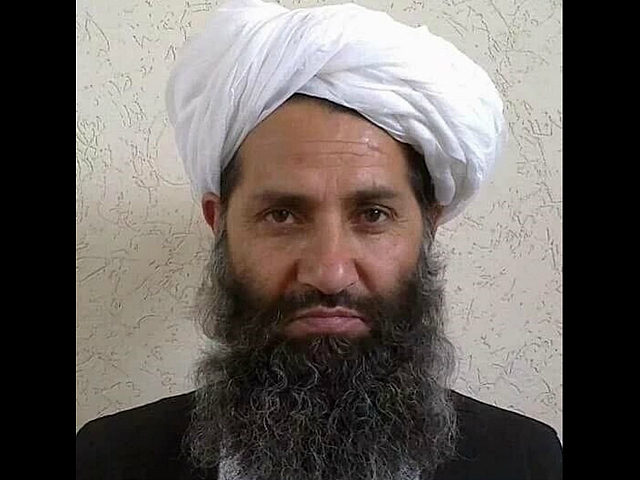The Supreme leader of Afghan terror group the Taliban may have recently died from the coronavirus, Afghanistan’s Khaama Press reported on Tuesday, citing information from a report by the American magazine Foreign Policy.
According to the report, sources with knowledge of development within the Taliban’s ranks confirmed to Foreign Policy that the jihadi leader Mullah Hibatullah Akhundzada tested positive for coronavirus. The acting director of the Taliban’s military operations, Mawlavi Mohammad Ali Jan Ahmad, told the magazine Akhundzada is “sick but is recovering.”
Khaama Press points out that at least three other Taliban figures told Foreign Policy under the condition of anonymity that Akhundzada died while receiving treatment for coronavirus symptoms.
The Taliban has refused to officially comment on its leader’s health status so far.
According to Khaama Press, recent unconfirmed reports indicate that Mullah Yaqoob, the son of the Taliban’s late founder, Mullah Mohammad Omar, has been appointed as the interim leader of the Taliban, further strengthening support of the claims that Akhundzada has died.
Reports last month indicated that Mullah Yaqoob had been appointed as the Taliban’s military chief following a reorganization of the terrorist group’s leadership, suggesting Yaqoob was already primed to assume a top role.
News of the Taliban leadership shuffle comes shortly after the Afghan government released hundreds of Taliban prisoners last week in response to a reportedly unexpected ceasefire called by the Taliban during the Islamic holiday weekend known as Eid al-Fitr at the end of May. On May 26, the Afghan government said it planned to release 900 Taliban prisoners in the following days.
The Afghan government says it expects the Taliban to reciprocate by releasing members of Afghan security forces currently detained by the terrorist group. The prisoner exchange was proposed in February by the U.S. as a way to build goodwill between the two sides; the Taliban refuses to recognize Afganistan’s government as legitimate, claiming it is the country’s true ruler.
This has lead to repeated breakdowns in peace talks set up by foreign supporters of a peaceful Afghanistan, such as the U.S.

COMMENTS
Please let us know if you're having issues with commenting.